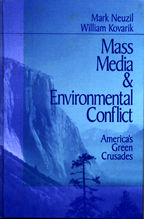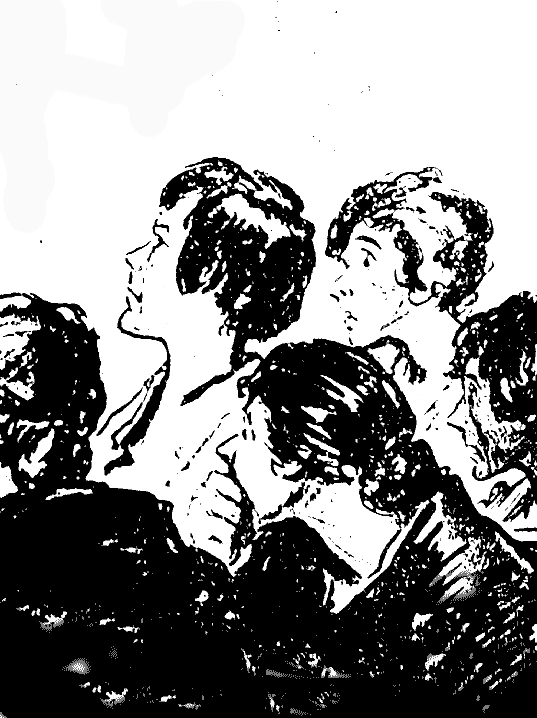By Bill Kovarik
The advent of what the Roanoke Times calls “Higher Education for the Masses” through Massive Online Open Courses (MOOCs) might be a hopeful sign for colleges, as noted in this June 6th, 2003 editorial.
But there is a problem.
According to the Times, paraphrasing Larry Sabato, “universities must come up with a business model that ensures they don’t give away their intellectual [property] …”
(Ahem). Whose intellectual property?
The university doesn’t actually own the intellectual property. Legally, a faculty member’s traditional academic work belongs to that faculty member. Tests, lecture notes, journal articles, textbooks, research results and patents all belong to the college professor, unless there is a separate specific contract that explicitly assigns rights to the university or a third party contractor.
The law (Title 17 of the US Code) is clear. So is the case law. For example, in 2010 the US Supreme Court said in Stanford University v Roche that an inventor has the first right to a patent. In similar cases, like the Reid case of 1989, the court said that absent a contract, intellectual property belongs to the creator.
The general contract for university faculty, also called a personnel policy, is clear too. You can look up the faculty handbooks for any Virginia university and most say that traditional academic works belong to the creator or inventor unless there is a substantial university investment. And in that case, there has to be a separate contract with the faculty member.
Why is this important? For one thing, many of us believe that the future of the university is on the line.
The former head of the American Association of University Professors noted in a June 12 Chronicle of Higher Education article that ownership of intellectual property is an essential part of what makes a college teacher.
At stake… is not just the ability of faculty members to profit from their own writings or inventions, but the future of their profession. “If we lose the battle over intellectual property, it’s over,” Mr. Cary Nelson warned. “Being a professor will no longer be a professional career or a professional identity,” and faculty members will instead essentially find themselves working in “a service industry,” he said.
Academic freedom is an important part of this argument. A democratic society needs experts who are free to give their views. If a college professor’s writings do not belong to the professor, then the professor literally is not free to express her or himself. Engineering professors might have to hold back on bridge safety concerns; environmental scientists might be forced to rubber-stamp toxicological reports they don’t agree with; historians could be pressured into whatever flavor of the month perspective is politically correct; climatologists would be told to shut up; and constitutional law experts could be silenced about abuses of the First Amendment. That’s not a university; it’s more like a think tank with a few classes on the side.
There’s an equity issue as well. We college professors are desperately underpaid, and an increasing number of our colleagues are called “adjunct” professors, and they are being paid less than high school teachers for what amounts to full time jobs without health benefits or, really, the slightest regard for their well being.
Like other Virginia state employees, we haven’t raises in decades, despite the soaring cost of living and (yes) the shocking cost of college for OUR kids as well as yours. None of those gargantuan tuition increases have gone to the faculty (although, embarrassingly, quite a bit of it has lined the pockets of Virginia college presidents and their ever-expanding administrative staffs).
Finally, there’s the question of efficiency. If you want innovation and cost savings, the way to achieve it is not to take something away from deserving people, but to reward them. No college professor is going to make a MOOC a success if they are forced to give up what they already own in the process.
It would seem far more efficient, and equitable, not to mention in keeping with tradition and existing law, to ask college professors to be partners in MOOC type courses and to openly acknowledge their moral and intellectual property rights and responsibilities.
It is up to a professor whether or not they want to participate in the new intellectual property economy. Most of us are giving it a look, but very few of us will do it on a coercive basis.
——–
Postscript:
Clay Shirkey, in a Chronicle of Higher Education post, notes that MOOCs ar essentially the first time that an alternative to college has emerged. What happens now, he says, is largely in the hands of the people experimenting with the new tools, rather than (those) defending themselves from them.


 Revolutions in Communication
Revolutions in Communication Mass Media & Environmental Conflict
Mass Media & Environmental Conflict